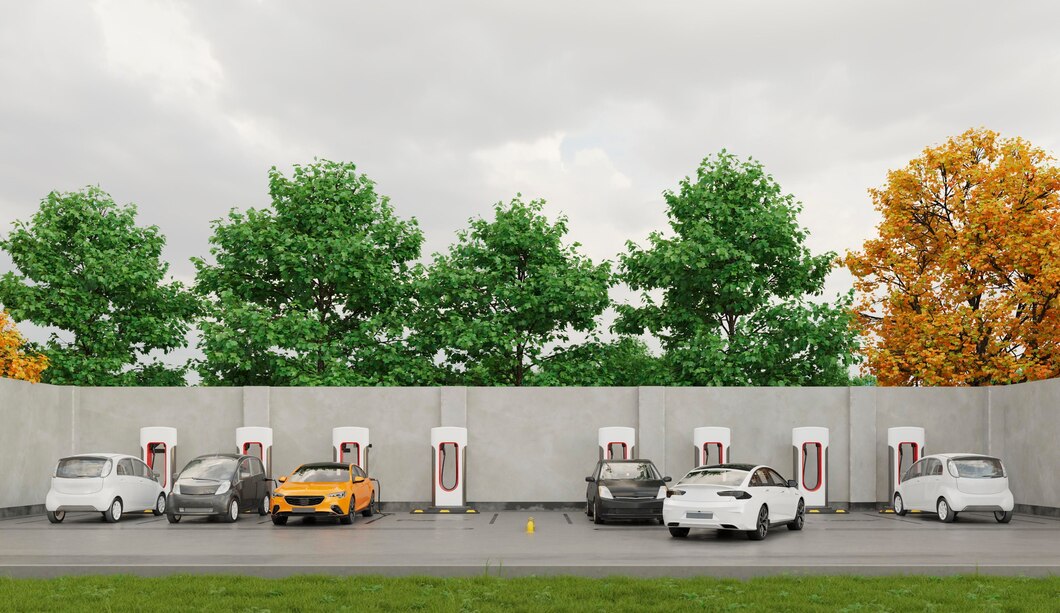
As electric vehicles (EVs) become more mainstream, choosing the right charging solution is essential for every EV owner. One of the key decisions you’ll face is whether to rely on public vs private EV charging. Each option comes with its own set of advantages and disadvantages. In this guide, we’ll explore the differences between public and private charging, helping you make the best decision for your EV charging needs.
1. What is Public EV Charging?
Public EV charging refers to charging stations that are accessible to everyone, typically located in public spaces such as parking lots, malls, or along highways. These charging stations are operated by third-party providers and offer a convenient way to charge your vehicle when you’re away from home.
Key Features of Public Charging:
- Available at various locations like shopping centers, gas stations, and public garages.
- Charging costs are often higher compared to private chargers due to convenience.
- Some stations offer fast charging for quicker battery replenishment.
Benefits of Public Charging:
- Ideal for long-distance travel and when you’re on the go.
- Convenience for those without a private charging station at home.
- Availability in urban areas, making it easy to top up while you shop, work, or eat.
2. What is Private EV Charging?
Private EV charging refers to home-based charging solutions that require the installation of a dedicated charging point at your residence. This option allows you to charge your vehicle overnight, ensuring it’s ready to go the next day.
Key Features of Private Charging:
- Installed at your home, typically in a garage or driveway.
- Charging at home tends to be cheaper and more convenient.
- Can be slower depending on the charger installed, though some home chargers offer fast charging.
Benefits of Private Charging:
- 24/7 accessibility, as you can charge your EV whenever you need to.
- Lower charging costs, especially compared to public stations.
- Avoid the hassle of finding a charging station when you’re out and about.
3. Cost Comparison: Public vs Private Charging
One of the main considerations when choosing between public vs private EV charging is cost. While public charging stations may offer convenience, the pricing structure can vary significantly depending on the location and provider.
Public Charging Costs:
- Generally more expensive due to the convenience of being located in busy areas.
- Some stations offer subscription models or pay-per-use pricing.
Private Charging Costs:
- Charging at home typically costs less, especially if you take advantage of home electricity rates.
- You may need to pay for installation of a charging point, but over time, the cost is usually lower.
4. Speed of Charging: Public vs Private EV Charging
The speed of charging is another important factor to consider when deciding between public and private charging.
Public Charging Speed:
- Fast chargers (DC Fast Charging) are available at many public stations, providing quick top-ups for long trips.
- Level 2 chargers are more common and provide slower charging speeds but are still much faster than home chargers.
Private Charging Speed:
- Home chargers (Level 1) generally provide slower charging speeds but are perfect for overnight charging.
- For faster charging at home, you can opt for a Level 2 charger, but installation costs are higher.
5. Convenience: Public vs Private EV Charging
Convenience plays a big role in determining the best charging option for you.
Public Charging Convenience:
- Public chargers are great for those who don’t have a private charging station at home.
- However, finding an available charger can sometimes be a challenge, especially in high-demand areas.
- Long-distance travelers often rely on public charging for mid-trip top-ups.
Private Charging Convenience:
- With a private charger, you’ll always have access to a fully charged vehicle each morning.
- No need to worry about availability or waiting for a charger.
6. Which Option Is Right for You?
When deciding between public vs private EV charging, consider your driving habits, lifestyle, and where you live. If you live in a home with a garage and can install a charging point, private charging offers long-term convenience and savings. On the other hand, public charging is a great option for those who don’t have a dedicated space or need to charge on the go.
Conclusion: Public vs Private EV Charging — Making the Right Choice
Both public and private EV charging have their own advantages, and the best option for you will depend on your needs and circumstances. While public charging offers convenience for long trips, private charging provides a cost-effective and hassle-free solution for daily use. No matter which option you choose, public vs private EV charging is all about making your EV ownership experience as smooth and efficient as possible.

